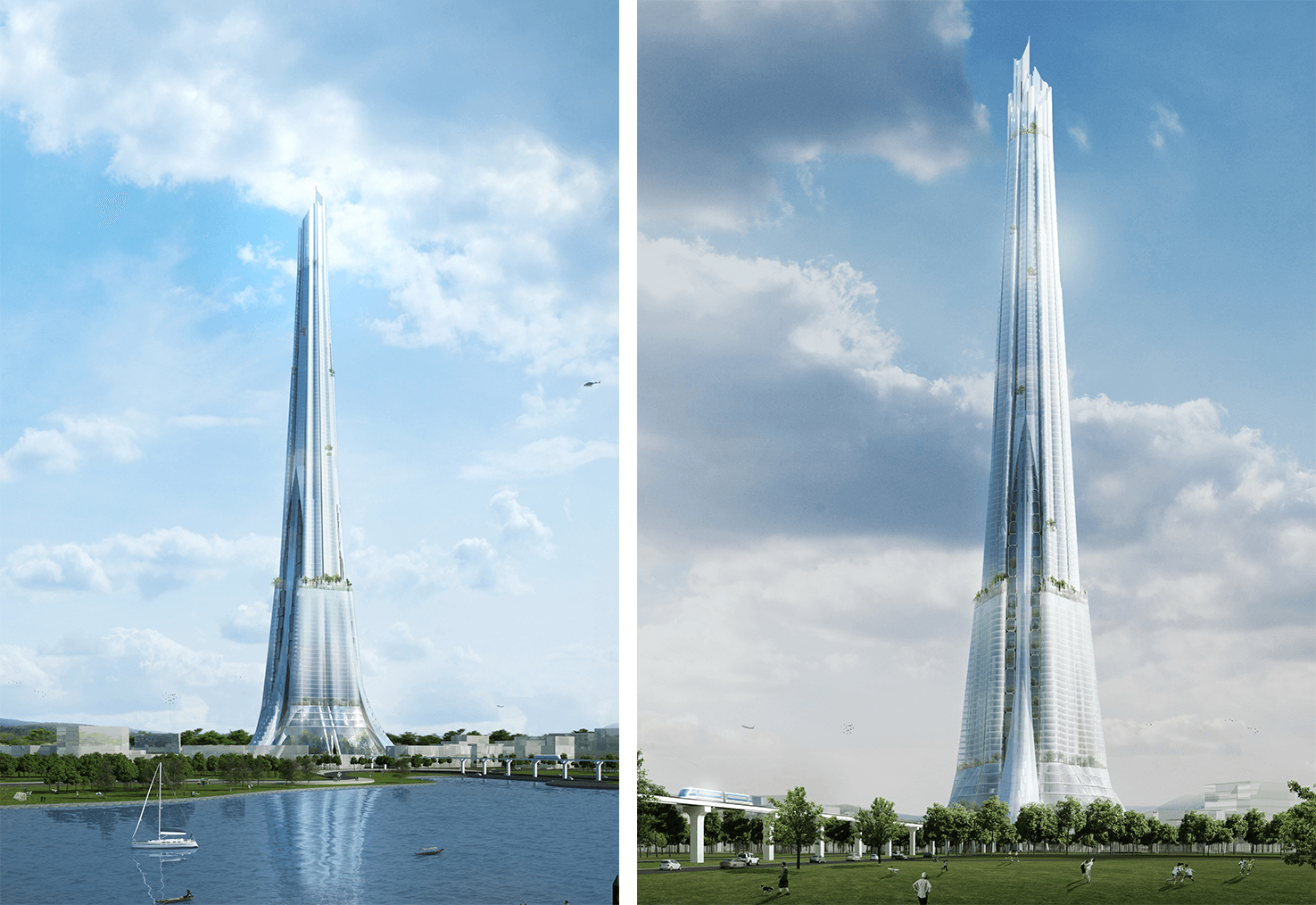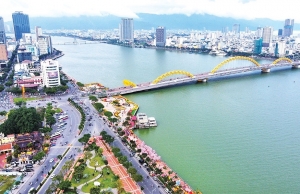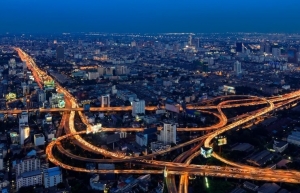Smart city creation must be robust and appropriate
The IMD Smart City Index, developed in partnership with The World Smart Sustainable Cities Organization, shows the extent to which technology is enabling cities to achieve a higher quality of life for their inhabitants.
 |
| Ludwig Graf Westarp, smart city expert, German Association of Small and Medium Enterprises in Vietnam |
The index is based on the regional Human Development Index and interviewed 20,000 citizens who were surveyed about 15 aspects of living in their cities, including acceptance of digital technologies.
According to the IMD results for 2023, Hanoi ranks 100th and Ho Chi Minh City 103rd of 141 cities analysed. In international comparison, the rankings of both Vietnamese cities deteriorated since 2019 by up to 27 ranking positions, due to those are growing rapidly due to urbanisation and economic growth.
Traffic chaos, a lack of housing, and increasing resource consumption are challenges connected to the rapid growth.
So, why are smart cities important for Vietnam on its way to become a high-income country? As mentioned, the IMD Smart City Index shows the extent to which technology is enabling cities to achieve a higher quality of life for their inhabitants. This is connected to preserving the environments of the communities and goes along with more efficiently used time for productive work, for spending time with the family, raising children, a better work-life balance, and inclusive and sustainable economic growth.
Smart cities are technology-based urban communities whose measures help a city improve its social, economic, and environmental conditions and provide a better life for the city’s residents with their participation in the planning of city projects. A set of indicators can be used to assess the performance of a city in a range of areas, including the economy, environment, mobility, governance, people, and living standards.
The smart economy component is intended to measure the city’s economic performance, such as its GDP, employment rates, and the number of businesses operating in the city.
The major Vietnamese cities have already embraced the concept of smart city development. In Vietnam, this development is understood as a tool for economic progress. Ho Chi Minh City, as Vietnam’s biggest economic hub, has set the goal to become a smart city by 2030, achieving major milestones in e-government and e-enterprises. In this time, it is projected that the digital economy will contribute up to 40 per cent of the city’s regional GDP.
To establish a robust digital data foundation, the city’s Department of Information and Communications has initiated a data-building strategy. The Ho Chi Minh City Local Government Service Platform, for instance, connects with the National Population Database, the National Public Service e-portal, a database on administrative procedures, and other crucial national databases such as social insurance and justice.
Over 1,000 state departments and businesses, hospitals, and schools in the city have established links with this system.
Since the world is pulling together with climate goals, Vietnam can make advantage of the market of climate smart investments and the opportunity to build greener, technologically innovative cities. Areas of more comprehensive development that can benefit from smart green technology are flood protection systems, waste management systems, and the transportation grid. The use of big data in transportation can also enable city governments to better manage traffic.
The Vietnamese government has earmarked 2025 as the year in which smart city technology can be employed for further sustainable development. To succeed, it is crucial to draft legislation and enforce that it is required for new buildings to be outfitted with green technology. If that does not happen, green technology facilities will remain voluntary and the potential for greening will be limited.
To continue to grow in the long term, Vietnam must strive for a consistent energy transition and set environmental standards.
Developing smart cities create new jobs and also attract foreign investment. After years of having an underdeveloped infrastructure, Vietnam’s economic advancement has allowed the opportunity to comprehensively update its tech grid. Vietnam has visions to transform its cities to integrated smart cities that master Internet of Things connectivity.
Cities like Ho Chi Minh City and Hanoi are growing rapidly, and it is significant to include holistic building and urban development concepts and to use intelligent technologies, components, materials as well as digitally networked working methods. It is about social, ecological, and economic responsibility.
The IMD Smart City Index includes the acceptance of digital technologies, which is high in Vietnam. Around 90 per cent of the citizens of Hanoi and Ho Chi Minh City are willing to concede personal data to improve traffic congestion and feel that the availability of online information has increased their trust in authorities.
These are superb conditions for successful smart city transformation processes. Thus, developing smart cities will be crucial to Vietnam’s further economic progress to become a high-income country.
 | Japanese ambassador prioritises smart city development At a meeting between city leaders and the Japanese Ambassador to Vietnam on October 25, Ambassador Yamada Takio expressed a keen interest in accelerating major projects in Hanoi, particularly the Smart City initiative in the city's northern area. |
 | Smart city accolades pour in for Danang The central city of Danang will be honoured with a Vietnam Smart City Award for the fourth consecutive year at the end of this month. |
 | Danang the jewel in central region crown Danang has long been known as an alluring place to live in Vietnam. However, for its long-term vision, the city targets to become a liveable city at the international level. |
 | Thailand steps up smart city development Thailand is accelerating the development of smart cities, aiming to enhance the country's digital capabilities and the quality of life for urban communities towards a sustainable future, said Thai Deputy Prime Minister and Minister of Commerce Phumtham Wechayachai. |
What the stars mean:
★ Poor ★ ★ Promising ★★★ Good ★★★★ Very good ★★★★★ Exceptional
Related Contents
Latest News
More News
- Construction firms poised for growth on public investment and capital market support (February 11, 2026 | 11:38)
- Mitsubishi acquires Thuan An 1 residential development from PDR (February 09, 2026 | 08:00)
- Frasers Property and GELEX Infrastructure propose new joint venture (February 07, 2026 | 15:00)
- Sun Group led consortium selected as investor for new urban area (February 06, 2026 | 15:20)
- Vietnam breaks into Top 10 countries and regions for LEED outside the US (February 05, 2026 | 17:56)
- Fairmont opens first Vietnam property in Hanoi (February 04, 2026 | 16:09)
- Real estate investment trusts pivotal for long-term success (February 02, 2026 | 11:09)
- Dong Nai experiences shifting expectations and new industrial cycle (January 28, 2026 | 09:00)
- An Phat 5 Industrial Park targets ESG-driven investors in Hai Phong (January 26, 2026 | 08:30)
- Decree opens incentives for green urban development (January 24, 2026 | 11:18)

 Tag:
Tag:





















 Mobile Version
Mobile Version